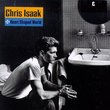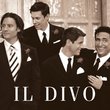| All Artists: Pietro Mascagni, Ruggero Leoncavallo, Tullio Serafin, La Scala Theater Orchestra, Maria Callas, Anna Maria Canali, Rolando Panerai, Giuseppe di Stefano, Ebe Ticozzi, Tito Gobbi Title: Mascagni: Cavalleria Rusticana & Leoncavallo: Pagliacci (2 complete operas) with Maria Callas, Giuseppe di Stefano, Tito Gobbi, Tullio Serafin, Chorus & Orchestra of La Scala, Milan Members Wishing: 0 Total Copies: 0 Label: EMI Classics Release Date: 8/19/1997 Genre: Classical Styles: Opera & Classical Vocal, Historical Periods, Modern, 20th, & 21st Century Number of Discs: 2 SwapaCD Credits: 2 UPCs: 724355628725, 724355628756 |
Search - Pietro Mascagni, Ruggero Leoncavallo, Tullio Serafin :: Mascagni: Cavalleria Rusticana & Leoncavallo: Pagliacci (2 complete operas) with Maria Callas, Giuseppe di Stefano, Tito Gobbi, Tullio Serafin, Chorus & Orchestra of La Scala, Milan
 | Pietro Mascagni, Ruggero Leoncavallo, Tullio Serafin Mascagni: Cavalleria Rusticana & Leoncavallo: Pagliacci (2 complete operas) with Maria Callas, Giuseppe di Stefano, Tito Gobbi, Tullio Serafin, Chorus & Orchestra of La Scala, Milan Genre: Classical
The singing is very good in this performance, and the acting (particularly by Maria Callas) is even better. Tullio Serafin, who has evidently studied Mascagni's own performances, knows how to get maximum impact without pus... more » |
CD DetailsSynopsis
Amazon.com essential recording The singing is very good in this performance, and the acting (particularly by Maria Callas) is even better. Tullio Serafin, who has evidently studied Mascagni's own performances, knows how to get maximum impact without pushing the tempo or overstating the dynamics. It is particularly interesting to observe Callas bringing her dramatic skills into verismo operas. The gritty realism of these performances makes one regret that Callas didn't spend more time performing verismo opera. She is totally immersed in the characters, and intensely aware of the importance of the words in this kind of opera (though she also habitually gave a verismo intensity and nuance to the less compelling texts of bel canto). Giuseppe Di Stefano and Herbert von Karajan are outstanding in both of these short operas; Tito Gobbi has only the supporting role of Tonio in I Pagliacci, but he plays it for all it's worth and gives a classic performance of the great prologue. --Joe McLellan Similarly Requested CDs
|
CD ReviewsTruly incredible 01/25/2000 (5 out of 5 stars) "I am deeply struck by how extraordinary this Cavelleria Rusticana is; I have not even listened to all of Pagliacci, because I am enraptured by the gorgeous rhythms that open Cavelleria. The prelude and chorus are remarkable in their sweeping, emotive, and deeply peaceful expressions, and then we are taken directly into the plaintive Callas, and the tragedy begins to build. The performances from Callas, Stefano, Gobbi, and the orchestra all work to exemplary effect in creating a remarkably intense atmosphere. This is a performance that I have to recover from: it absorbs the emotions so entirely that I need a couple of hours to return to my ordinary self. I cannot comment on the technical aspects of the opera, but do know that it works with incredible sublimity in creating a kind of hyperreal atmosphere where the characters and action of the work become infused with an immense importance that does not seem to be present in our real and ordinary lives." SEARING INTENSITY WITH CALLAS IN TWO EXPLOSIVE ROLES L. Mitnick | Chicago, Illinois United States | 01/05/2005 (5 out of 5 stars) "First of all, the veteran Tullio Serafin shapes these two operatic shockers into something as close to contemporary drama as is possible. Both operas burst out of the speakers with a vibrance and immediacy that is all too rare in operatic recordings. In "Cavalleria Rusticana:", Callas reminds one of what the great legendary actress Anna Magnani would have sounded like if she sang. Her voice is large, dark, and incredibly rich. By contrast, her Nedda in "Pagliacci" is brighter voiced, liberated, and more than a little vicious. It is a tribute to Callas that she would undertake two such different roles within such a short time (the "Cav" was recorded first, with the "Pagliacci" following by six months). Giuseppe di Stefano is fine in both operas, as is Rolando Panerai (who sings a beautiful love duet with Callas in "Pagliacci"), but Tito Gobbi's deformed clown Tonio in "Pagliacci" is amazing, and his confrontation with Callas' Nedda is hair-raising. Surely, these operas have been given some very fine recordings (most notably the "Cav" and "Pag" conducted by Herbert von Karajan on DGG), but none ---- absolutely NONE ---- have been better than these. Not only for Callas fans, but for anyone who wants to know what verismo opera is about." Great verismo performance from all performers Kate | 07/20/2000 (5 out of 5 stars) "Callas' tone quality was ideal for verismo opera, and Cavalleria being the first operatic role she ever studied (at the tender age of 14!), I think it is safe to say that her interpretation was solid, as well as her vocal technique. She had a timbre that could very easily play into the 'coarse country maiden' sound that is most appropriate in the moving roles of Santuzza and Nedda. Just beware: The performers truly succeed in executing brutally quick and dirty (dramatically speaking, not musically!) stories that really leave one feeling shocked. They should not be digested in conjunction, but separately to allow oneself to calm down before being struck down by the power. This might be the one problem with this set from the perspective of the listener: it is certainly not subtle. But then, the lack of subtlety is perhaps more the fault of Mascagni and Leoncavallo than the performers. . . . Some highlights of this set in my opinion:In Cavalleria: Callas' 'Voi Lo Sapete' was absolutely moving, although I couldn't help feeling as though this single aria probably caused her more strain than Turandot, Tosca, and Isolde combined---talk about a complete union of emotional and physical involvement! The 'No, No, Turiddu' duet was also gorgeous and lulled an imediate response from me. I felt pity for the obviously ill-treated and decieved Santuzza, but was also sympathetic for Di Stefano's Turiddu. In many of these recordings, Di Stefano was merely a backdrop for Callas' magnificence, but he truly holds his own as this Turiddu----very convincing dramatically and vocally.In Pagliacci: Rolando Panerai was one of the highlights in this piece---it's a shame Callas didn't record with him more often. As already mentioned, Gobbi does a beautiful job with the prologue. Di Stefano's "Vesti La Giubba" is a little bit less than extraordinary. I think Di Stefano had a voice that was somewhat too innocent and, well, might I add, not quite *hefty* enough to carry the role of Canio effectively. That said, he is not offensive in the least and the overall product is quite riveting. I cannot profess to be a Cav/Pag expert, but from the little I have experienced, this appears to be a very fine set indeed. As long as you are not revolted by the distinctive Callas tone quality (I happen to be a professed Callas lover so my opinions are probably somewhat biased!) I think you will very much enjoy this recording."
|

 Track Listings (20) - Disc #1
Track Listings (20) - Disc #1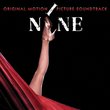

![Classic Rock, Volume One [MCA]](/images/no_cover/m.png?v=15401716)
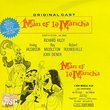
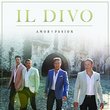

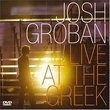
![Il Divo [Box Set]](https://nationalbookswap.com/cd//m/48/4648/13334648.jpg)
